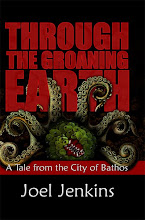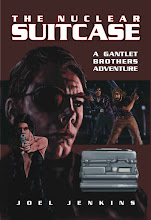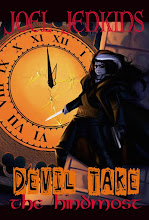From the Iliad to the western dime
novels, there is a long history of anti-heroes or protagonists that
behave with only their self interest in mind and lack virtue,
morality, or other heroic values. To the writer, telling a story
about such characters provides particular challenges. If a character
has no redeeming qualities the reader may not care at all what
happens to the protagonist and quit reading. I've discarded many
books and short stories, because I didn't care about the protagonist
enough to continue.
So what works? What can bring a reader
to the table when your main character is a thoroughly unrepentant
character of the lowest morals?
- Cheat Around the Edges: Though your character lacks many moral principles, he does have at least one good quality or admirable goal. An example of this sort of character is James Bond, who has little in the way of morals or principles (or is willing to compromise them to accomplish his goals), yet he doesn't hesitate to lay his life on the line to protect England from villainous organizations of all stripes and hues. This helps us buy into Bond and care what happens to him, even as he uses and discards strings of women with little regard to what happens to them after he gets the information that he wants. Also, Fleming does a good job of showing Bond's inner turmoil, which the movies rarely reflect, and also of showing the physical and mental toll that his job takes.
- Evil vs. Less Evil: The protagonist, though not motivated by the welfare of others, is acting against a greater evil than he, so in effect he becomes the 'good guy' of the piece by contrast. An example of this is Moorcock's Elric of Melnibone.
- Selective Story Telling: Your character is a ruthless mercenary who has slaughtered many innocents, but you choose only to tell the stories where he has been wronged by someone else and is seeking redress, or where for some reason he decides that it is in his interest to help another. Conan is a good example of this sort of character. On close examination of his character he has no moral qualms about killing and plundering, but those incidents are glossed over somewhat and the Robert E Howard stories tend to incorporate the first two elements of Cheating Around the Edges and Evil vs. Less Evil. This way, we can relate to Conan, even though the reality is that he might knife us in a dark alley if he thought we might have a few coins in our pocket.
- Machinations and Train Wrecks: In part five of Through the Groaning Earth (also available for $2.99 Kindle version), The Jewels of Sagra Yoth, I tell the story of Willen, who has no redeeming qualities whatsoever except for unrestrained ambition. He's a two-bit loser thief and murderer out to make a name for himself. To my surprise, I've had comments from readers that this is one of their favorite sections from the book. Why does this section work, when there is utterly no reason to like Willen or care what happens to him? Here's my theory:
a) The character
has a clearly defined goal
b) The character
struggles mightily to gain that goal
c)The character uses every bit of his limited brain power to
orchestrate his theft, and so we are interested in the machinations
and his underhanded efforts.
d)The reader wants to watch the train wreck.
I think this last
bit cannot be underestimated. Not only do readers deserve to see the
character reap the whirlwind of his poor choices, but the writer has
a duty to show that bad decisions have bad consequences. Willen
struggles mightily to steal the Jewels of Sagra Yoth and then, in the
end, all his evil actions come back to haunt him, and he realizes
that maybe he's not quite as smart as he thought.
For another example
of thoroughly unrepentant and irredeemable characters look to Derrick
Ferguson's Diamondback stories. These stories don't so much use the
devices of Cheating around the Edges or Evil vs. Less Evil, or even
Selective Story Telling, but rely on the Machinations and Train Wreck
principles. The reader is enthralled by all the machinations, double
dealings, and backstabbings, and wants to see the ensuing trainwreck.
Honestly, I didn't care so much if the deadly killer Diamondback
lived or died, but I did want to see how everything played out, and
that kept me reading until the very last word.






















No comments:
Post a Comment